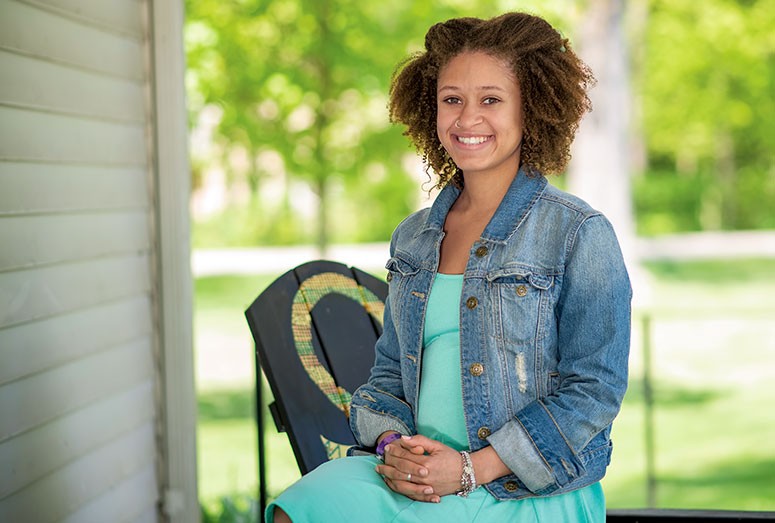Pets of Gambier: A Photo Essay
Drama cats. Presidential dogs. A flock of peacocks. Meet some of Kenyon's most beloved residents.
Read The StoryThe Kenyon Educational Enrichment Program (KEEP) celebrates 10 years.

After Tehya Boswell ’16 was accepted at Kenyon, she attended the Kenyon Educational Enrichment Program (KEEP) in the summer before her first year. “I went in determined to make friends, because I’m shy. And it was one of the best experiences I’ve had at Kenyon. Living with people for six weeks, I made a lot of friends that I can always count on,” she said.
This summer, KEEP celebrates its 10th anniversary as an intensive academic and co-curricular experience that connects students from underrepresented populations with supportive peers and mentors. KEEP is a large reason for the growth in the number of students of color and first-generation students on campus in the past decade.
The Office of Diversity, Equity and Inclusion manages the KEEP program. Associate Dean of Students Chris Kennerly helped launch KEEP and now works with program director Jacky Neri Arias ’13 to plan programming for KEEP students throughout the school year.
First-generation students are 10 percent of the entire student population at Kenyon, and they are 40 percent of the KEEP cohort, said Associate Provost Ivonne García. García has taught KEEP classes since the program began and has served as its co-director since 2013. “KEEP has been doing a lot of the work for Kenyon that some institutions haven’t been able to figure out how to do,” she said.
Several national projects emerged in the last decade to improve access to higher education, but they had a one-size-fits-all approach that required substantial investment. Kenyon built its own program on its previous successes. The Kenyon Academic Partnership (KAP) began to give students access to college-level academics in the 1980s, and its summertime version, the Summer Kenyon Academic Program (SKAP), launched in the 1990s and was renamed Camp 4 in 2014. The step after that was KEEP, piloted during the 2006-07 academic year with 12 scholars.
The Kenyon College Board of Trustees approved a fully funded program that fall and in 2012 increased funding so the program could serve 24 scholars. Funding to serve an additional 12 students was added for 2017 when the National Science Foundation granted Kenyon $999,195 to study how high-impact practices in the fields of science, technology, engineering and mathematics (STEM) can improve underserved students’ persistence and career success.
Boswell’s participation in Camp 4 and KEEP built her strong connection with Professor of Neuroscience Hewlet McFarlane, which culminated with her presenting research findings with McFarlane at a conference in Chicago just before her graduation last year. With the support network she had built at Kenyon, Boswell gradually refined her interests — in her first year she chose psychology, sophomore year she focused on neuroscience and junior year she decided to study those themes in public health.
McFarlane said, “I’ve watched her grow a lot. The College’s relationship with her was a six-year relationship, not four. We were able to mentor her starting in high school, and that’s what makes Kenyon unique.”
KEEP scholars represent a broad range of curricular and co-curricular interests and also possess strong academic and social leadership potential. The summer bridge program is intentionally scheduled to make the students feel the busy pace of college life, including weekend trips to such places as the Underground Railroad Museum in Cincinnati, Ohio.
“KEEP Scholars are exposed to the kind of life balance issues and the kind of academic expectations they will face in the fall. Our philosophy is that it is better that they feel that and handle it before they enroll,” García said. “We are very purposefully structuring the program that way.”
Drama cats. Presidential dogs. A flock of peacocks. Meet some of Kenyon's most beloved residents.
Read The StorySix alumni who work with animals share their favorite tips, tales and tricks of the trade.
Read The StoryA conversation between Laura Hillenbrand '89 H'03 and Julie Barton '95.
Read The StoryEnglish professor (and dog lover) Jim Carson probes the significance of animals in literature, drawing on insights…
Read The Story